Chinese netizens discuss US politicians using telltale nicknames
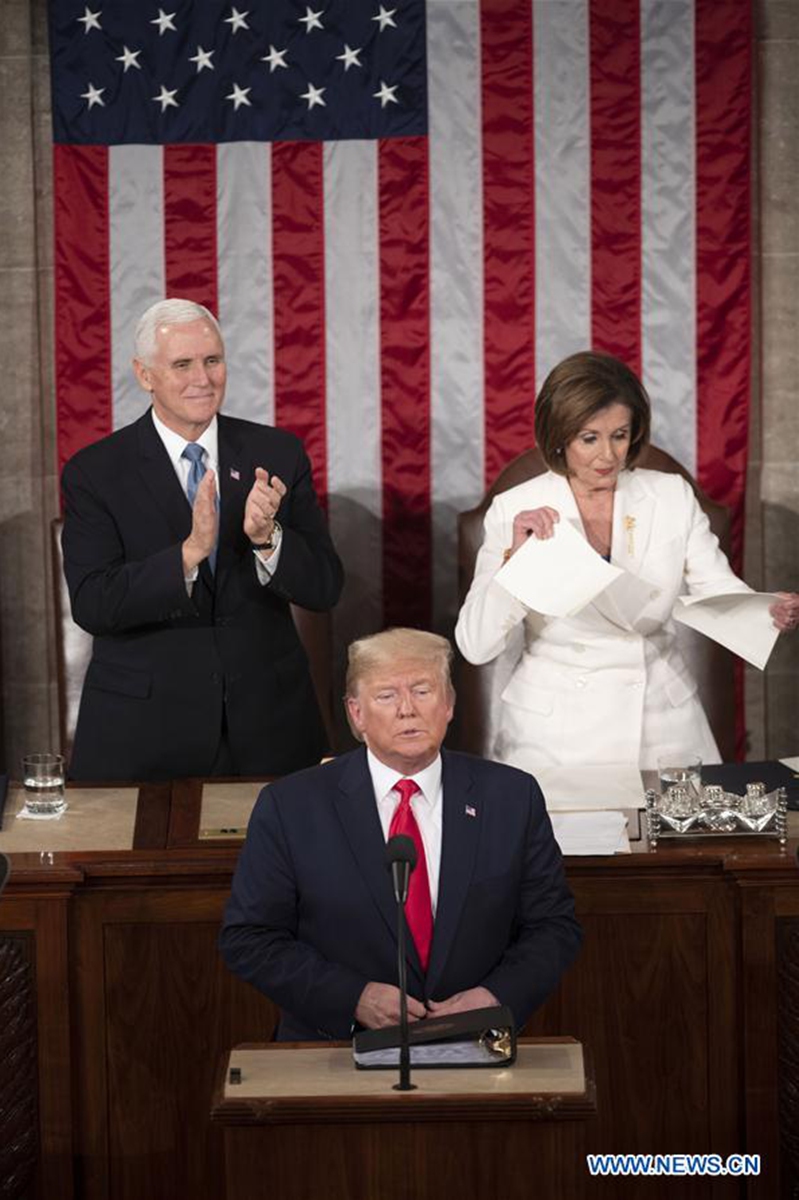
House Speaker Nancy Pelosi (R, back) tears up what appeared to be a copy of the president's speech during U.S. President Donald Trump's (front) State of the Union address to a joint session of Congress on Capitol Hill in Washington D.C., the United States, Feb. 4, 2020. U.S. President Donald Trump delivered his third State of the Union address to a joint session of Congress Tuesday night. House Speaker Nancy Pelosi, who orchestrated the chamber's impeachment drive against Trump and was seated behind him during the address, reached out to shake his hand, which the president ignored. She tore up what appeared to be a copy of the president's speech at the end. (Xinhua/Liu Jie)
Young Chinese netizens are growing more fond of giving interesting monikers to US politicians as a humorous way to express their disdain over various absurd remarks or decisions made by the US administration, recently updating "Bunker Boy" to the list of nicknames for US President Donald Trump.
As #BunkerBoy has been trending on Twitter since Tuesday, Trump's new nickname was lauded by Chinese internet users as many posted hilarious memes on Sina Weibo.
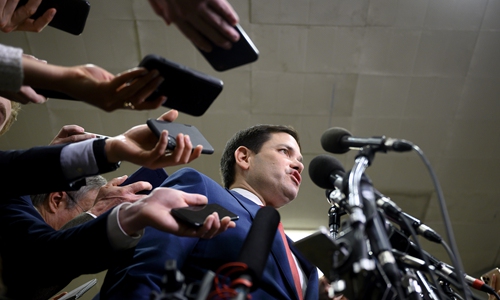
US Senator Marco Rubio. Photo: AFP
Many US politicians, including Trump, Secretary of State Mike Pompeo, Senator Marco Rubio, House Speaker Nancy Pelosi and former president Barack Obama, have all earned their nicknames in China that have mainly been given by young Chinese netizens who expressed their true sentiments against some US politicians, especially those skilled at smearing China with groundless accusations, in a biting and sarcastic way.
Mass scores of global netizens have turned to Twitter in recent days to mock Trump after it was reported that Trump was taken to an underground bunker to hide from protesters at the White House on May 29. Despite widespread outrage and mockery, Trump kept ridiculing the protesters and tweeted on Wednesday urging the US police to "get tough" in cracking down on protesters.
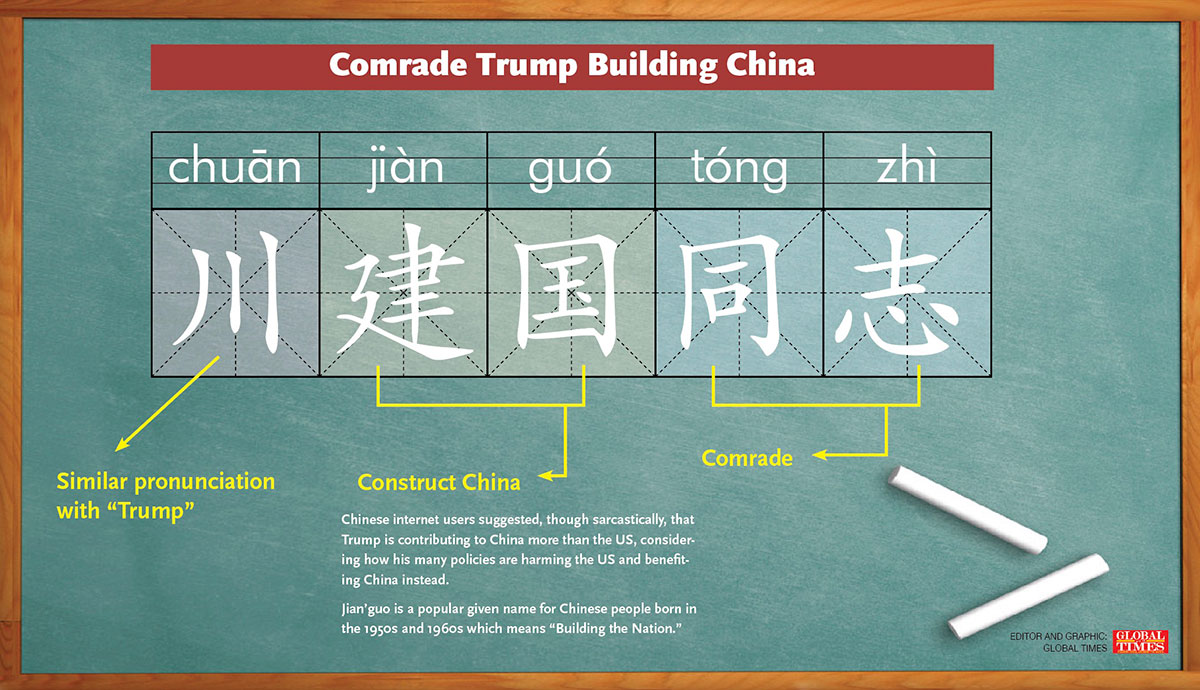
"Get tough, Comrade Jian'guo shouts from his bunker," which became a widely shared online meme across Chinese social media. "Comrade Chuan Jian'guo" - translated in this context as "Comrade Trump Building China" - is a widely known nickname for Trump given by Chinese internet users who suggested, though sarcastically, that Trump is contributing to China more than the US, considering how his many policies are harming the US and benefiting China instead. Jian'guo is a popular given name for Chinese people born in the 1950s and 1960s which means "Building the Nation."
"Comrade Trump, you have served our country with your tariffs, false accusations, blame games, military threats and your great hostile propaganda," a post with such a line gained more than 6,100 thumb-ups on Quora.
Some even opened a Sina Weibo account for Trump, giving his profile name as "Bunker Boy Comrade Jian'guo" and his description as "making China great again."
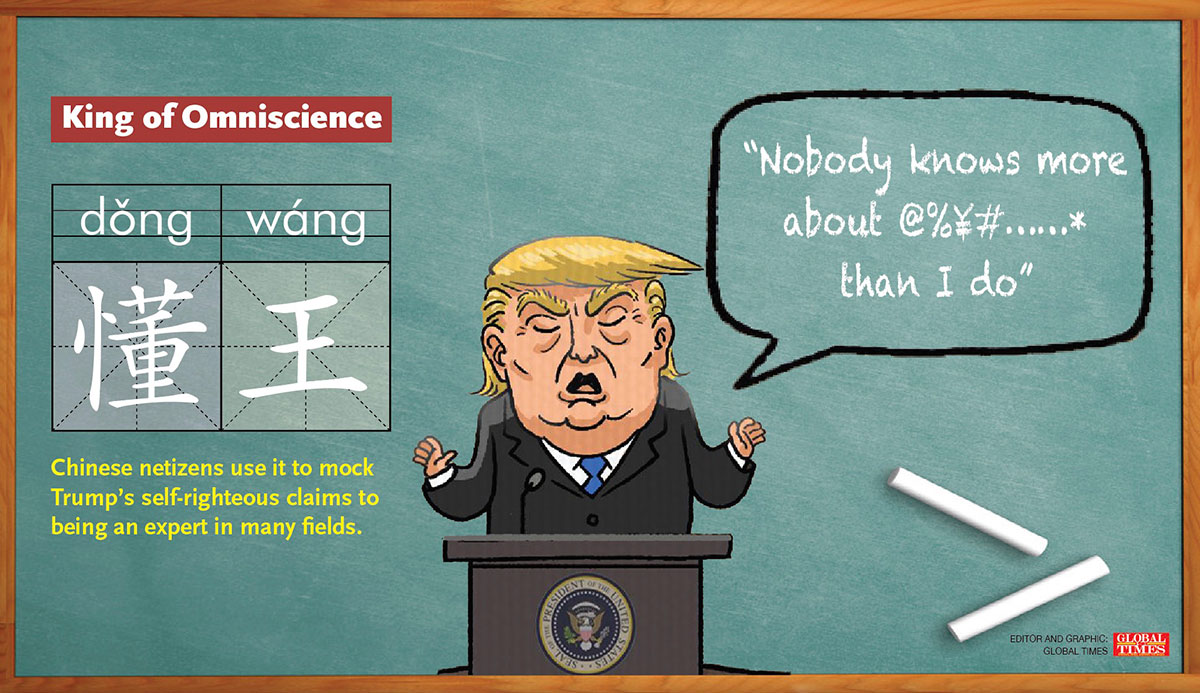
Trump also earned other nicknames, such as the "King of Knowledge" (Dong Wang, in Chinese meaning "know-it-all") to mock Trump's self-righteous claims to being an expert in many fields.
The tradition of giving nicknames to US politicians can be traced back to the era of former US president Barack Obama. Obama is known to many Chinese as O-Watching-Sea (Ao-Guan-Hai in Chinese) because he was given a calligraphy piece with a verse featuring the phrase "Watching the sea and hearing the tides" in 2009.
Compared with that of Trump, who has earned a backhanded compliment in China, other politicians' epithets given by Chinese netizens sound more spicy and sometimes plainly derogatory.
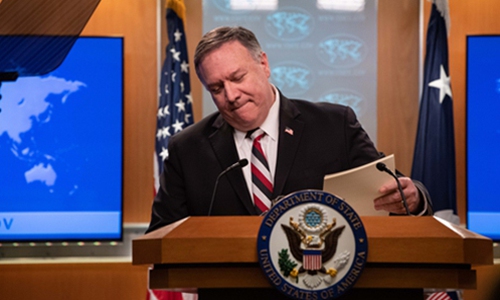
US Secretary of State Mike Pompeo Photo: AFP
US Secretary of State Mike Pompeo was called a "Rumormongerer" and a "political virus super spreader" referring to his frequent conspiracies and unsupported theories attacking China such as claiming the virus came from a Wuhan laboratory. Chinese netizens accuse Pompeo of creating many groundless accusations apparently undervaluing his position as a top diplomat in US foreign affairs.
Others call him "Buck-passer Pompeo," typically portraying how he loves to start buck-passing games to always pin the blame on other countries like China for deflecting the US government's botched responses and domestic chaos in the COVID-19 pandemic.
"Anti-China Pioneer" is a nickname given to US Senator Marco Rubio based on his hysterical anti-China views built on flawed logic. Another pioneer, White House trade advisor Peter Navarro earned the nickname "President Parroter" as he repeatedly trumpeted the "China threat" following Trump, and making political capital by vilifying China, as a Weibo user explained.
US House Speaker Nancy Pelosi was called "Nancy the Ripper" - inspired by "Jack the Ripper," an unidentified serial killer in the UK in the 1880s - after she ripped a copy of Trump's State of the Union address on February 4. She is also seen as one of the "rippers" who tear up China-US ties evidencing to her belligerent remarks against China.
"Such a culture shows that young Chinese netizens take up an entertaining mentality to respond to some American politicians whose ridiculous behavior has far deviated from the traditional image of respectable politicians," Xin Qiang, deputy director of the Center for American Studies at Fudan University in Shanghai, told the Global Times. "Such kinds of ridicule reflects Chinese netizens' confidence and show they are never afraid of any tough tone these American politicians try to put on against China."
Nicknames are a soft way to reflect the very frank and unvarnished public opinions of these US politicians, different to that of Chinese diplomats' and media's official and sharp tones, Li Haidong, a professor at the Institute of International Relations of the China Foreign Affairs University, told the Global Times, adding that it reflects the diversified culture of expression of Chinese netizens regarding political participation.